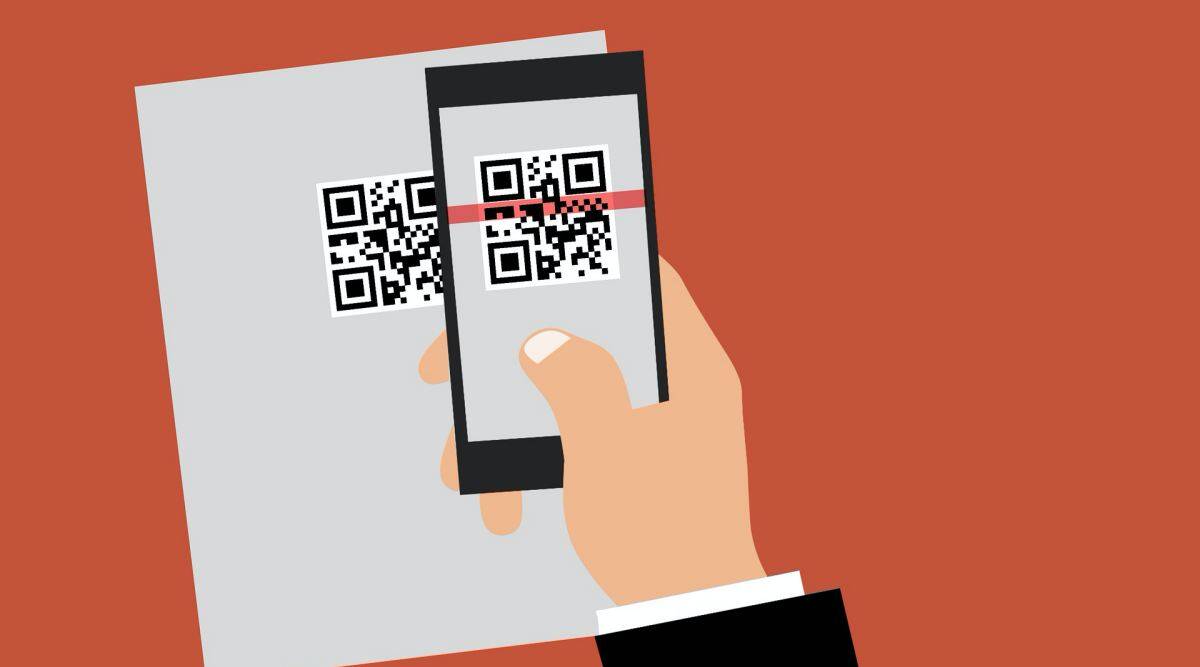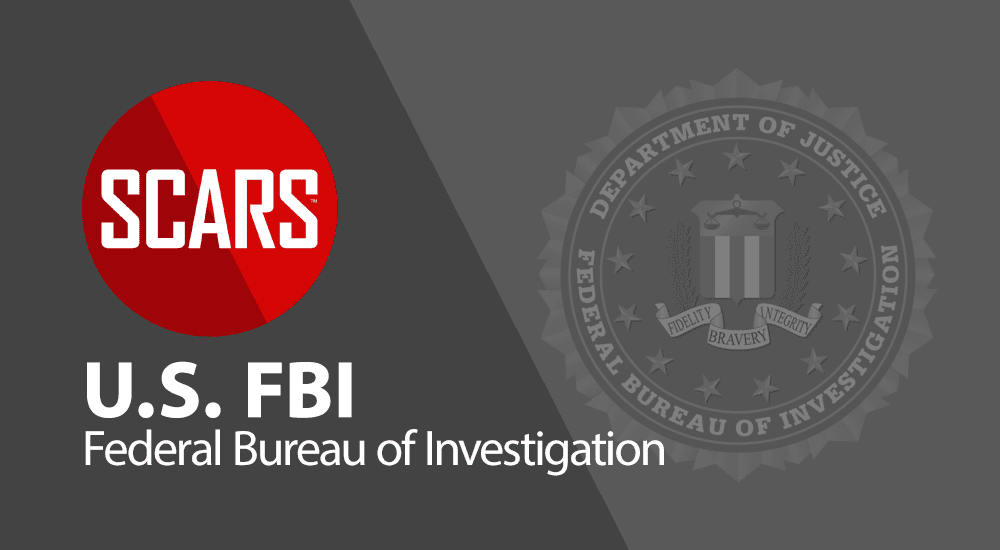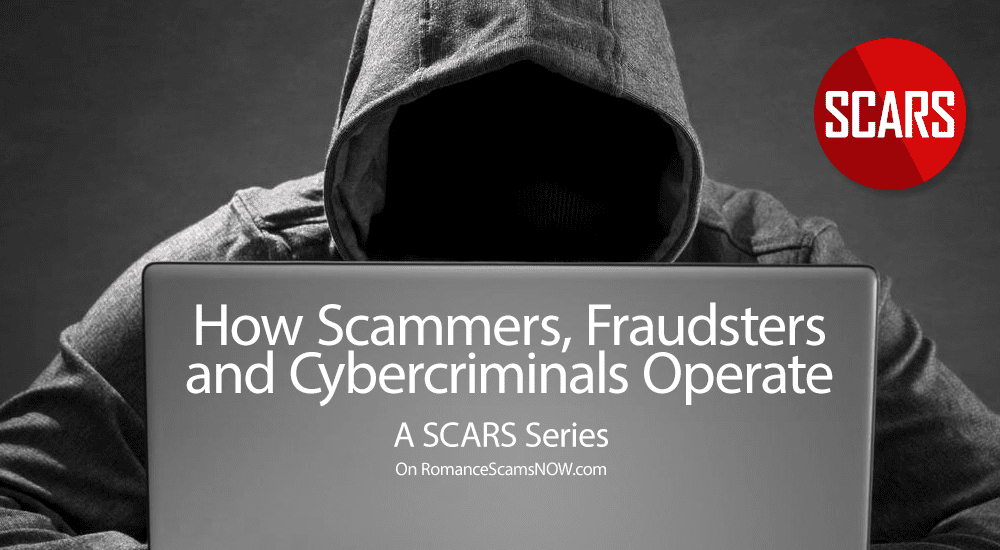
SCARS Institute’s Encyclopedia of Scams™ Published Continuously for 25 Years


QR Code and ‘Quishing’ Scams: What They Are, How They Work, and How to Avoid Them
QR codes, or quick response codes, are two-dimensional barcodes that can be scanned by smartphones and other devices to access information or perform an action. QR codes are becoming increasingly popular, as they are a convenient and easy way to access information or take action without having to type in a URL or address.
However, scammers have also begun to use QR codes to steal personal information or money from victims. This is known as quishing, or QR code phishing.
Scammers continuously adapt their tactics to stay one step ahead of their targets. One of the latest and most deceptive schemes is the QR code or “Quishing” scam. These scams exploit our reliance on technology, particularly the use of QR (Quick Response) codes, to catch victims off guard. This article delves into what QR code scams are, how they work, how they ensnare unsuspecting individuals, and the various types of scams that employ this approach.
What are QR Code Scams
QR code scams, often referred to as “Quishing” scams, merge the world of digital technology and social engineering to manipulate and deceive victims. Quishing is a portmanteau of “QR code” and “phishing,” combining the use of QR codes with the psychological manipulation of phishing tactics. Phishing itself involves tricking individuals into divulging sensitive information, such as login credentials or personal details, under the pretense of a trusted source. QR code scams take this manipulation to the next level by incorporating QR codes as a delivery method.
How Quishing Scams Work
QR Code ‘Quishing’ Sscams typically work in one of two ways:
- Scammers send victims emails or text messages with QR codes embedded in them. The email or text message may appear to be from a legitimate source, such as a bank or credit card company. The message may claim that the victim needs to update their account information or take some other action. The QR code, when scanned, will take the victim to a fake website that looks like the legitimate website. The victim may then be prompted to enter their personal information, such as their login credentials or credit card number.
- Scammers place QR codes in public places. The QR codes may be placed on stickers, posters, or even on physical products. The QR codes may claim to offer something of value, such as a free gift, discount, or coupon. When the victim scans the QR code, they are taken to a fake website or download a malware-infected app.
How Do QR Code Scams Work?
- Lure with QR Codes: Scammers create QR codes that appear to lead to legitimate websites, applications, or offers. These QR codes can be printed on flyers, posters, stickers, or embedded in email messages and text messages.
- Social Engineering: The QR codes often promise enticing rewards or offers to attract victims, such as free gifts, discounts, or exclusive access. This plays on our innate desire to gain something valuable.
- Scanning the QR Code: When individuals scan the QR code using their smartphones or other devices, they are directed to a malicious website or app rather than the expected legitimate source.
- Data Harvesting: The fake website or app may ask victims to enter personal information, including usernames, passwords, credit card details, or even social security numbers, under the guise of claiming their reward. This information is then harvested by the scammers.
- Malware Delivery: In some cases, scanning the QR code might result in malware or ransomware being installed on the victim’s device, further compromising their security.
How Scammers Catch Victims
Scammers catch victims by exploiting their trust in QR codes and their desire to get something for nothing. QR codes are becoming increasingly common and accepted, so victims may not be suspicious of a QR code embedded in an email or text message. Additionally, scammers often use social engineering techniques to make their scams more believable. For example, they may impersonate a legitimate company or offer a deal that seems too good to be true.
The success of QR code scams lies in manipulating human psychology. Several factors contribute to victims falling prey to these scams:
- Urgency and Excitement: Scammers create a sense of urgency or excitement with the promise of a fantastic reward, enticing victims to act impulsively.
- Familiarity: Many people are not well-versed in QR code security and tend to trust QR codes found in public spaces, assuming they are legitimate.
- Impersonation: Scammers skillfully impersonate well-known brands or trusted organizations, adding credibility to their deceptive schemes.
- Lack of Vigilance: In our fast-paced lives, people often scan QR codes without scrutinizing their source or the information they lead to, allowing scammers to exploit this complacency.
Types of Scams that Use QR Codes
QR Codes Quishing scams can be used to commit a variety of crimes, including:
- Identity theft: Scammers can use the personal information they steal from victims to commit identity theft, such as opening new credit card accounts or taking out loans in the victim’s name.
- Credit card fraud: Scammers can use QR Codes to take the victim to a checkout screen, such as for a restaurant, the credit card numbers they steal from victims to make fraudulent purchases. This is one of the most common.
- Malware infection: Scammers can use QR codes to download malware onto victims’ devices. This malware can steal personal information, spy on victims’ activities, or even take control of their devices.
- Cryptocurrency theft: Scammers can use QR codes to trick victims into sending them cryptocurrency.
- Lost Dog or Cat: Scammers can post local notices r even on social media claiming to look for a lost dog or cat and lure the victims to a scam or malware website.
- Fake Prize Giveaways: Scammers lure victims with QR codes promising prizes, gift cards, or free merchandise. Once on the deceptive website, victims are prompted to provide personal information.
- Tech Support Scams: Some QR code scams lead to fake tech support websites that claim a victim’s device is infected with viruses. The victim is then coerced into paying for unnecessary services or providing access to their device.
- Coupon Scams: QR codes offering unrealistically generous discounts lead victims to counterfeit e-commerce websites. After entering payment information, the victim receives nothing, and their financial data is stolen.
- Investment Scams: Fraudsters might promise lucrative investment opportunities, prompting victims to scan QR codes that lead to fake trading platforms. The victims invest their money, which then disappears.
- Charity Scams: Scammers use QR codes to direct individuals to fraudulent charity websites, appealing for donations. Victims contribute money, believing they are helping a cause, while the funds fall into the scammer’s hands.
How to Avoid QR Codes Quishing Scams
There are a number of things you can do to avoid QR Codes quishing scams:
- Be careful about scanning QR codes. Only scan QR codes from trusted sources. If you are unsure whether a QR code is safe, do not scan it.
- Inspect the URL of the website you are taken to. If you scan a QR code and are taken to a website that looks suspicious, do not enter any personal information. Instead, type the URL of the legitimate website into your browser.
- Beware of offers that seem too good to be true. If you see a QR code that claims to be offering something of great value, be suspicious. Scammers often use this tactic to lure victims in.
- Use a security app. A security app can help to protect your device from malware and other threats.
Tips for Avoiding QR Code Quishing Scams:
- Be wary of QR codes that are placed in public places, especially if they are not associated with a business or organization.
- Be careful about scanning QR codes from people you don’t know.
- If you are unsure whether a QR code is safe, you can always ask someone you trust for help.
By following these tips, you can help to protect yourself from quishing scams.
More Suggestions for how to Protect Yourself from QR Code Scams
- Verify the Source: Before scanning any QR code, ensure you are familiar with the source. Be cautious of QR codes in public spaces or from unknown senders.
- Use QR Code Scanner Apps: Employ reputable QR code scanner apps that can detect malicious codes and warn you before you visit a harmful website.
- Be Skeptical: If an offer or prize seems too good to be true, it probably is. Exercise caution, and verify the legitimacy of the offer independently.
- Don’t Share Personal Information: Be hesitant about providing personal or financial information through QR code links. Legitimate organizations rarely request this via QR codes.
- Stay Informed: Keep up to date with the latest scams and fraud alerts. Awareness is your best defense against new and evolving threats.
Remember
QR code scams or Quishing scams represent a new frontier of deception that capitalizes on our trust in technology and our desire for rewards. By combining QR codes with phishing tactics, scammers can craft enticing offers that lead to malicious websites, risking victims’ personal information and financial security. Staying vigilant, verifying sources, and using secure QR code scanner apps are essential steps in protecting yourself from these cunning scams.
If you think you may have been a victim of a quishing scam, report it to the authorities and your bank or credit card company immediately. You should also change your passwords and monitor your accounts for any suspicious activity.
More:
- Phishing, Vishing, or Smishing – Phishing Scam Types – What Is The Difference? (romancescamsnow.com)
- BazarCall Scams: Call Centers Playing A Roll In Phishing & Ransomware Attacks (romancescamsnow.com)
- Phishing Alert: PayPal Invoice Scam (romancescamsnow.com)
- How To Recognize, Avoid, and Report Phishing Scams (romancescamsnow.com)
- Spam and Phishing – Identity Theft, Fraud And Cybercrime Alert (romancescamsnow.com)
- Phishy Emails – Phishing Scams Guest Article by Dana Mantilla (romancescamsnow.com)
- There Is A New Kind Of Phishing Called Whaling Scam Attacks (romancescamsnow.com)
- Romance Scam/Fraud Can Be Local Not Just Online (scamsnow.com)
- 16shop Phishing-As-A-Service Platform Taken Down (scamsnow.com)
- Talking To Kids/Youth About Online Risk [VIDEO] (scamsnow.com)
-/ 30 /-
What do you think about this?
Please share your thoughts in a comment below!
LEAVE A COMMENT?
Recent Comments
On Other Articles
- Arwyn Lautenschlager on Love Bombing And How Romance Scam Victims Are Forced To Feel: “I was love bombed to the point that I would do just about anything for the scammer(s). I was told…” Feb 11, 14:24
- on Dani Daniels (Kira Lee Orsag): Another Scammer’s Favorite: “You provide a valuable service! I wish more people knew about it!” Feb 10, 15:05
- on Danielle Delaunay/Danielle Genevieve – Stolen Identity/Stolen Photos – Impersonation Victim UPDATED 2024: “We highly recommend that you simply turn away form the scam and scammers, and focus on the development of a…” Feb 4, 19:47
- on The Art Of Deception: The Fundamental Principals Of Successful Deceptions – 2024: “I experienced many of the deceptive tactics that romance scammers use. I was told various stories of hardship and why…” Feb 4, 15:27
- on Danielle Delaunay/Danielle Genevieve – Stolen Identity/Stolen Photos – Impersonation Victim UPDATED 2024: “Yes, I’m in that exact situation also. “Danielle” has seriously scammed me for 3 years now. “She” (he) doesn’t know…” Feb 4, 14:58
- on An Essay on Justice and Money Recovery – 2026: “you are so right I accidentally clicked on online justice I signed an agreement for 12k upfront but cd only…” Feb 3, 08:16
- on The SCARS Institute Top 50 Celebrity Impersonation Scams – 2025: “Quora has had visits from scammers pretending to be Keanu Reeves and Paul McCartney in 2025 and 2026.” Jan 27, 17:45
- on Scam Victims Should Limit Their Exposure To Scam News & Scammer Photos: “I used to look at scammers photos all the time; however, I don’t feel the need to do it anymore.…” Jan 26, 23:19
- on After A Scam, No One Can Tell You How You Will React: “This article was very informative, my scams happened 5 years ago; however, l do remember several of those emotions and/or…” Jan 23, 17:17
- on Situational Awareness and How Trauma Makes Scam Victims Less Safe – 2024: “I need to be more observant and I am practicing situational awareness. I’m saving this article to remind me of…” Jan 21, 22:55
ARTICLE META
Important Information for New Scam Victims
- Please visit www.ScamVictimsSupport.org – a SCARS Website for New Scam Victims & Sextortion Victims
- Enroll in FREE SCARS Scam Survivor’s School now at www.SCARSeducation.org
- Please visit www.ScamPsychology.org – to more fully understand the psychological concepts involved in scams and scam victim recovery
If you are looking for local trauma counselors please visit counseling.AgainstScams.org or join SCARS for our counseling/therapy benefit: membership.AgainstScams.org
If you need to speak with someone now, you can dial 988 or find phone numbers for crisis hotlines all around the world here: www.opencounseling.com/suicide-hotlines
A Note About Labeling!
We often use the term ‘scam victim’ in our articles, but this is a convenience to help those searching for information in search engines like Google. It is just a convenience and has no deeper meaning. If you have come through such an experience, YOU are a Survivor! It was not your fault. You are not alone! Axios!
A Question of Trust
At the SCARS Institute, we invite you to do your own research on the topics we speak about and publish, Our team investigates the subject being discussed, especially when it comes to understanding the scam victims-survivors experience. You can do Google searches but in many cases, you will have to wade through scientific papers and studies. However, remember that biases and perspectives matter and influence the outcome. Regardless, we encourage you to explore these topics as thoroughly as you can for your own awareness.
Statement About Victim Blaming
SCARS Institute articles examine different aspects of the scam victim experience, as well as those who may have been secondary victims. This work focuses on understanding victimization through the science of victimology, including common psychological and behavioral responses. The purpose is to help victims and survivors understand why these crimes occurred, reduce shame and self-blame, strengthen recovery programs and victim opportunities, and lower the risk of future victimization.
At times, these discussions may sound uncomfortable, overwhelming, or may be mistaken for blame. They are not. Scam victims are never blamed. Our goal is to explain the mechanisms of deception and the human responses that scammers exploit, and the processes that occur after the scam ends, so victims can better understand what happened to them and why it felt convincing at the time, and what the path looks like going forward.
Articles that address the psychology, neurology, physiology, and other characteristics of scams and the victim experience recognize that all people share cognitive and emotional traits that can be manipulated under the right conditions. These characteristics are not flaws. They are normal human functions that criminals deliberately exploit. Victims typically have little awareness of these mechanisms while a scam is unfolding and a very limited ability to control them. Awareness often comes only after the harm has occurred.
By explaining these processes, these articles help victims make sense of their experiences, understand common post-scam reactions, and identify ways to protect themselves moving forward. This knowledge supports recovery by replacing confusion and self-blame with clarity, context, and self-compassion.
Additional educational material on these topics is available at ScamPsychology.org – ScamsNOW.com and other SCARS Institute websites.
Psychology Disclaimer:
All articles about psychology and the human brain on this website are for information & education only
The information provided in this article is intended for educational and self-help purposes only and should not be construed as a substitute for professional therapy or counseling.
While any self-help techniques outlined herein may be beneficial for scam victims seeking to recover from their experience and move towards recovery, it is important to consult with a qualified mental health professional before initiating any course of action. Each individual’s experience and needs are unique, and what works for one person may not be suitable for another.
Additionally, any approach may not be appropriate for individuals with certain pre-existing mental health conditions or trauma histories. It is advisable to seek guidance from a licensed therapist or counselor who can provide personalized support, guidance, and treatment tailored to your specific needs.
If you are experiencing significant distress or emotional difficulties related to a scam or other traumatic event, please consult your doctor or mental health provider for appropriate care and support.
Also read our SCARS Institute Statement about Professional Care for Scam Victims – click here to go to our ScamsNOW.com website.
















Thank you for your comment. You may receive an email to follow up. We never share your data with marketers.